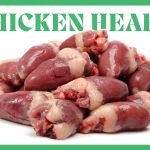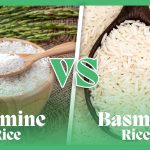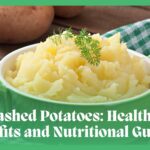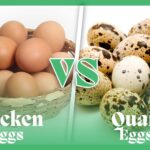Mashed potatoes; are a beloved comfort food often overlooked for being the nutritional marvel that they are. They are tucked away among the culinary classics. With a buttery taste and creamy texture, mashed potatoes are a nutritional powerhouse that provides a bundle of goodness with every spoonful.
So, let’s begin by exploring the historical origins of potatoes, and subsequently, we can delve into the specifics of mashed potatoes!
What are Mashed potatoes?
Mashed potatoes are a popular dish made by mashing boiled potatoes and sometimes combining them with various ingredients to create a smooth and creamy texture. Because of its versatility, mashed potatoes can be altered to accommodate a range of tastes and preferences. The idea behind these creamed potatoes is to celebrate the comfort and simplicity of the traditional preparation in addition to making a tasty side dish.

Types of mashed potatoes:
Mashed potatoes can be savored by mixing them with various other flavorful ingredients. Some of the types are:
1) Traditional Mashed Potatoes
Traditional mashed potatoes are made by adding butter, milk or cream, and salt and pepper to the potatoes. Potatoes are peeled, cut, and boiled until they are fork-tender, and then mashed with the ingredients until the texture is smooth and creamy.

2) Garlic Mashed Potatoes
Garlic mashed potatoes are made by adding butter, milk or cream, garlic cloves, and salt and pepper to the boiled potatoes and mashing them until the desired texture. Additionally, minced or roasted garlic can be added as sprinkles for a robust garlic flavor.

3) Cheesy Mashed Potatoes
As the name indicates, cheesy mashed potatoes are made by adding grated cheddar cheese or parmesan cheese to the boiled potatoes with milk or cream and salt and pepper. A generous amount of cheese is folded into the potatoes and mashed until the cheese is melted and well combined.

4) Loaded Mashed Potatoes
Loaded mashed potatoes are topped with sour cream, chives, and bacon for added flavor and texture. Potatoes are pre-cut, boiled, and then mashed with milk or cream and salt and pepper as per the conventional method. They are topped with bacon bits or crispy bacon, chopped chives or green onions, sour cream, and shredded cheese.

5) Sweet Potato Mash
Potatoes and sweet potatoes are pre-cut and boiled until soft and mashed well to attain a uniform texture. Both potatoes are mixed with butter, orange juice or milk, brown sugar or maple syrup, and seasoned with salt. For an added burst of flavor, cinnamon and nutmeg are incorporated into the mesh of potatoes.

History:
The scientific name for potatoes is Solanumtuberosum, and they are thought to have originated from the Andes in South America. More than 7,000 years ago, the indigenous people of this region—including those in modern-day Bolivia and Peru—were among the first to cultivate and eat potatoes. Potatoes may have been domesticated in the high-altitude Andean plateaus, where they adapted to the harsh soil and climate, according to archaeological evidence.
Although the exact origin of mashed potatoes is unclear, they are connected to European culinary traditions, especially those of Ireland and the United Kingdom. Originating in South America’s Andes, potatoes were brought to Europe during the 16th century and eventually became a staple food (1).
Through trade and exploration, the potato made its way from Europe to other parts of the world and became a staple in various cultures due to its ability to adapt to different climates. Owing to their many culinary applications and innumerable cultivars created for tastes and uses, potatoes are becoming an essential component of diets globally.
Nutritional composition:
Let’s explore the nutritional benefits of mashed potatoes beyond their reputation as a comforting side dish and witness how this versatile dish can be a valuable addition to a balanced diet.
Not only are mashed potatoes a great source of carbohydrates, but they also contain important macro and micronutrients. They have a notable amount of dietary fiber (4g), low fat (0.2g), and a moderate amount of protein (3g) in a single cup. Mashed potatoes include B vitamins like niacin and B6, and vitamin C, which support immune function.
They also provide minerals like phosphorus for strong bones and potassium for preserving electrolyte balance. Their high water content helps you stay hydrated, and their betaine and choline content support several physiological processes (2), (3).
| Nutrients | Amount (1 cup or 240grams) |
|---|---|
| Calories | 214 |
| Macronutrients | |
| Carbohydrates | 50 g |
| Proteins | 3 g |
| Fats | 0.2 g |
| Dietary fibers | 4 g |
| Sugars | 2 g |
| Micronutrients | |
| Vitamins | |
| Vitamin C | 23.2 mg |
| Vitamin B6 | 0.4 mg |
| Folate | 18.4 mcg |
| Vitamin K | 2.4 mcg |
| Niacin (B3) | 1.4 mg |
| Pantothenic acid (B5) | 0.7 mg |
| Minerals | |
| Phosphorus | 66 mg |
| Magnesium | 37.4 mg |
| Calcium | 23.6 mg |
| Potassium | 919 mg |
| Iron | 1.1 mg |
| Sodium | 531 mg |
| Other essential elements | |
| Water content | 185 g |
| Choline | 22.3 mg |
| Betaine | 0.3 mg |
Role in human nutrition:
Let’s move towards uncovering the health benefits lying hidden in the creamy texture and buttery taste of mashed potatoes:
Digestive Health
Mashed potatoes are a great complement to a well-balanced diet because of their role in sustained energy release, satiety, and contributions to overall nutrient intake—however, moderation is the key. Savoring them as a component of a varied and nutrient-dense meal may enhance your food’s culinary and nutritional qualities.
Carbohydrates, mostly in the form of starch, are abundant in mashed potatoes. The potato’s cell structure is broken down during cooking and mashing, increasing the starch’s accessibility for digestion. Many carbohydrates can be found in a typical serving of mashed potatoes, making them a convenient and fast source of energy (4).
Regulate blood sugar levels
The effect of mashed potatoes on blood sugar levels is largely determined by their glycemic response, impacted by cooking techniques and potato variety. According to the literature, adding fat or acids to mashed potatoes during preparation can reduce their glycemic index and encourage a slower release of glucose into the bloodstream. Owing to their high fiber and carbohydrate content, mashed potatoes are a good choice for people who wish to control their blood sugar levels and feel full (5).
Lowers the risk of cardiovascular diseases
Mashed potatoes are unique among comfort foods in that they are low in fat, making them a gratifying and adaptable choice for a variety of diets and health objectives. Mashed potatoes’ reduced fat level fits in with diets that put heart health first. To lower the risk of heart disease, the American Heart Association suggests eating a diet low in trans and saturated fats (6).
Mashed potatoes have low-fat content, therefore if made carefully, taking into account extra fats and serving quantities, they can be a heart-healthy option.
Contributes to a healthy gut
A balanced diet must include fiber as it supports numerous physiological processes and enhances general health. Even though mashed potatoes are frequently praised for their coziness and adaptability, their high fiber content may not always be immediately apparent. But one thing that raises its fiber content is the addition of potato skin. Adding potato peels to their mashed parts may increase the overall dietary fiber.
Fibers have several health advantages, including regulating blood sugar, managing weight, and promoting digestive health. Mashed potatoes’ high fiber content adds to a feeling of fullness and contentment. For those trying to restrict their calorie consumption or lose weight, this may be helpful. According to a study published in the “Journal of Nutrition”, a high-fiber diet is linked to a decreased risk of overeating, which supports healthy weight and general well-being (7).
Lowers risk of stroke
The creamy and buttery potatoes are an abundant source of essential minerals including potassium. Potassium is vital for neuron function, correct fluid balance, and controlling muscle contractions. A study highlighting the importance of potassium in cardiovascular health that was published in the “Journal of the American College of Nutrition” emphasizes the possible impact that potassium may play in regulating blood pressure and lowering the risk of stroke (8).
Bone and neural health
Mashed potatoes help you consume more magnesium; another important element the body needs for various biochemical activities. Magnesium supports the immune system, maintains healthy bones, and functions in muscles and nerves. A review highlights the role that magnesium plays in preventing chronic diseases and stresses the necessity of magnesium for general health (9).
Another mineral that can be found in mashed potatoes is phosphorus, which is essential for the production of DNA and RNA, energy metabolism, and healthy bones. Potatoes add phosphorus to the diet, despite being frequently linked to dairy products. Studies highlight the significance of phosphorus in preserving bone health and in averting bone-related illnesses (10).
Though they are present in smaller proportions, trace elements like iron and zinc nevertheless significantly contribute to the nutritional profile of mashed potatoes. Zinc is important for wound healing and immune system function, whereas iron is necessary for the transportation of oxygen and the synthesis of energy. A study on dietary zinc and iron emphasizes their significance in general body health.
Aid in fetal growth, metabolic and immunological functioning
Vitamin C, B6, and folate are among the important vitamins essential for fetal growth, metabolism, and immunological function. Folate is essential for cell division and DNA synthesis and protects growing embryos from neural tube abnormalities. In addition, the literature demonstrates how a diet high in folate can promote the health of both mothers and their infants (11).
Brain Health
Potatoes are an excellent source of vitamin B6 or pyridoxine. The creation of neurotransmitters and the metabolism of proteins, lipids, and carbohydrates depend on vitamin B6. A review outlines the many functions of vitamin B6, including its role in the growth and maintenance of the brain. When mashed potatoes are part of a well-balanced diet, they help fulfill the daily need of B6.
Antioxidants
Mashed potatoes provide vitamin C, carotenoids, and polyphenols, which increase our intake of antioxidants. These antioxidants are essential for preventing oxidative stress and advancing general well-being. While potato kinds and cooking techniques can affect the amount of antioxidants in mashed potatoes, adding colorful potato varieties and boiling them with the skin can improve their nutritional worth.
Mashed potatoes provide a tasty and nourishing method to bolster the body’s antioxidant defenses as part of a balanced diet. A study highlights vitamin C’s antioxidant qualities and how it helps shield cells from oxidative damage. A tasty and easy approach to increase vitamin C consumption and strengthen the body’s resistance to oxidative stress is by including mashed potatoes in the diet (12).
Carotenoids, which include beta-carotene, are pigments that impart potatoes, their vivid hues. A study addresses how carotenoids help maintain eye health and lower the chance of developing chronic illnesses. A visually pleasing and nutritionally advantageous dish is produced when colorful potato varieties are added to mashed potatoes, increasing their carotenoid content (13).
Prevent chronic Diseases
Potatoes also contain polyphenols, a broad class of plant chemicals that have antioxidant qualities. The existence of polyphenols in potatoes and their possible health advantages was highlighted in a review that was published in the “Journal of Agricultural and Food Chemistry” (14).
The prevention of chronic diseases and their anti-inflammatory properties have been linked to these substances. The contribution of polyphenols to the overall antioxidant capacity of mashed potatoes should not be disregarded, even though their concentration may not be as great as that of some other fruits and vegetables.
Best complimentary food for babies
Mashed potatoes are a particularly tasty, adaptable, and allergy-friendly food that can be prepared to fit a variety of dietary needs and preferences. Their straightforward flavor profile, flexibility in substituting dairy products, and intrinsic gluten-free qualities make them a safe and satisfying option for people with dietary sensitivities or allergies. Mashed potatoes, which are naturally free of gluten and allergens, are expected to become more and more popular as consumer knowledge of food allergies grows.
Mashed potatoes have a moderate flavor and a soft texture that makes them a good first feeding for babies. To determine an infant’s tolerance and prevent allergies, the American Academy of Pediatrics stresses the value of introducing them to a range of single-ingredient, allergen-free foods.
Prevents Alzhmer’s Disease
Choline, a water-soluble vitamin-like essential nutrient is abundant in potatoes. The neurotransmitter acetylcholine, which is essential for memory and motor control, is made from choline. Despite not being formally classified as a vitamin, choline is necessary to sustain good health. A medium-sized potato can supply roughly 15-20% of the recommended daily intake of choline, though the exact amount varies based on the type and preparation method.
Studies indicate that choline is essential for the development of cognition, especially in the perinatal and early childhood periods. Pregnant women who consume enough choline are linked to better cognitive function in their offspring, including enhanced memory and information processing abilities. Choline has also been connected to a lower risk of neurodegenerative illnesses like Alzheimer’s and age-related cognitive decline. When it comes to cooking techniques, boiling and baking preserve more choline than frying.
Side effects of mashed potatoes:
Although mashed potatoes are typically regarded as a healthy and nutrient-dense side dish, like many meals, they may have certain unintended consequences if ingested in excess or if specific ingredients are added. Here are some things to think about:
Impact on blood sugar
Because of their high glycemic index, potatoes can quickly raise blood sugar levels. For people who have diabetes or are attempting to control their blood sugar levels, this may be concerning.
Not a good option for lactose-intolerant
Mashed potatoes that include cream, butter, milk, or other dairy products might not be appropriate for people who are lactose intolerant or have dairy allergies.
Contribute to Hypertension
Mashed potatoes may pack a lot of salt, depending on the recipe and any other ingredients. Consuming too much salt might aggravate existing medical conditions like high blood pressure.
Digestive disturbance
Eating a lot of mashed potatoes might cause bloating, gas, or pain in the digestive tract for some people, especially those with sensitive stomachs.
In the grand symphony of culinary delights, mashed potatoes stand not only as a beloved comfort food but also as a nutritional powerhouse that deserves a standing ovation. As we conclude our exploration into the nutritional value of mashed potatoes, let’s savor the harmony of this classic dish—a medley of creamy textures, rich flavors, and essential nutrients.
From its robust potassium content to its dietary fiber and an ensemble of vitamins, mashed potatoes transcend their simple appearance to take center stage on the plate. So, whether you relish them as a side, topping, or the main act, let mashed potatoes continue to be a star player in your culinary repertoire.
Here’s to the humble spud and its nutritional prowess—may every forkful be a celebration of taste and well-being!
References:
- Britannica, T. Editors of Encyclopaedia (2023, December 27). potato. Encyclopedia Britannica. https://www.britannica.com/plant/potato
- https://nap.nationalacademies.org/catalog/10925/dietary-reference-intakes-for-water-potassium-sodium-chloride-and-sulfate
- https://fdc.nal.usda.gov/
- https://doi.org/10.1080/096374803/61976.
- https://doi.org/10.1079/NRR2005100 , https://www.heart.org/en/healthy-living/healthy-eating/eat-smart/fats/saturated-fats
- https://doi.org/10.12715/amr.2018.1.2
- https://doi.org/10.1161/01.STR.31.11.2751
- https://doi.org/10.3390/nu15245127
- https://doi.org/10.3390/nu12103001
- https://doi.org/10.1016/j.ajog.2021.12.035
- https://doi.org/10.3390/antiox8080247
- https://doi.org/10.3390/antiox8040085
- https://doi.org/10.3390/antiox11040603
- https://doi.org/10.3390/antiox11040603










Wonderful. I never knew potatoes are that useful. I always took potatoes as a weight gaining agent.